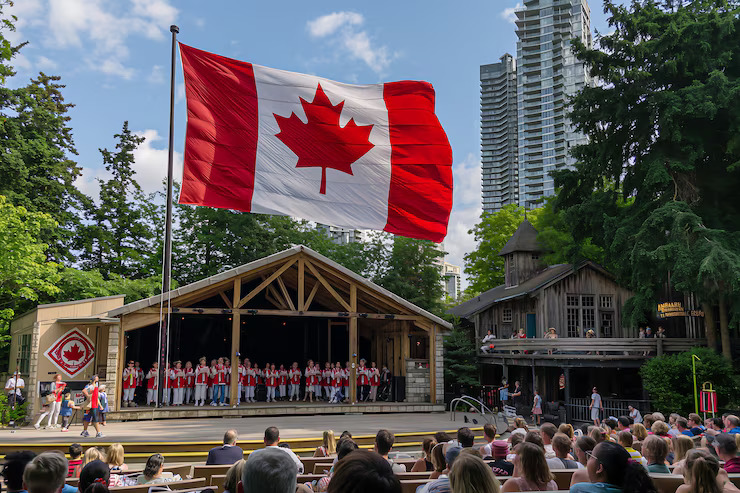- June 5, 2025
- Posted by: admin
- Category: blog

Introduction
Moving from Pakistan to Canada is more than just changing your address — it’s stepping into a new way of life. From daily habits to social customs, the cultural differences can be eye-opening. For many new immigrants, understanding these differences helps make the transition smoother and more enjoyable.
In this article, we’ll explore the key cultural contrasts between Pakistan and Canada, giving you insights to prepare for your new journey.
1. Individualism vs. Collectivism
In Pakistan, family ties and community are at the heart of life. Decisions often involve elders, and extended families living together are common.
Canada, on the other hand, places high value on individualism. Independence, personal space, and self-reliance are the norms. People often make decisions on their own, and it’s common for young adults to move out and live separately.
What does this mean?
Don’t mistake Canadian politeness and reserved behavior for coldness—it’s just a different way of showing respect.
2. Time Management
“Pakistan time” often means flexibility, where being a little late is socially acceptable. But in Canada, punctuality is very important—being on time shows respect, especially for appointments, work, and school.
Tip: Plan to arrive 5–10 minutes early for meetings and social events.
3. Communication Style
Pakistanis often communicate with subtlety and respect for hierarchy. In Canada, communication is generally direct, honest, and open.
For example, it’s normal in Canada to express opinions clearly and respectfully without worrying about causing offense.
4. Gender Roles and Equality
While Pakistan has more traditional gender roles, Canada strongly emphasizes equality. Women work, drive, and participate fully in society, and household duties are often shared.
Adapting to this might take time, but it’s an important part of life in Canada.
5. Social Norms and Interactions
Canadian social life is more private and scheduled. Unannounced visits are rare. Greetings like handshakes or hugs depend on the individual, so it’s good to wait for cues.
Pakistan, by contrast, has an open-door culture with frequent spontaneous social visits.
6. Food Culture
In Pakistan, meals are social and often lavish. In Canada, meals tend to be quicker and more individual, especially on weekdays.
Halal food is widely available in major cities—always check with restaurants to be sure.
7. Religious Practice
Canada supports freedom of religion. Mosques and Islamic centers are present in most cities, and Eid celebrations are common.
However, the call to prayer isn’t broadcast publicly, and you might need to balance work or school with prayer times.
8. Parenting & Schooling
Canadian schools encourage independence and critical thinking. Parents stay involved but often give children freedom to make choices.
This can be a shift from more controlling parenting styles common in Pakistan.
9. Respect for Law & Privacy
Laws in Canada are strictly followed, from traffic rules to noise levels. Privacy is respected, and personal space is valued.
10. Mental Health Awareness
Mental health is openly discussed and supported in Canada. Seeking help through counselling or therapy is common and encouraged.
If you feel homesick or stressed, don’t hesitate to reach out.
Conclusion
Adapting to Canadian culture is a process of blending your Pakistani roots with new customs. It takes patience and an open mind, but over time, you can create a fulfilling life that honors both worlds.
Read More: Step-by-Step Guide- Immigration to Canada from Pakistan
FAQs
Q: Is it hard for Pakistani families to adjust?
A: The initial months may be challenging, but most families settle well, especially in diverse cities.
Q: Can I practice Islam freely?
A: Yes, Canada respects religious freedom with mosques and halal options widely available.
Q: Should I abandon my cultural traditions?
A: No, keep your identity while embracing new experiences.

